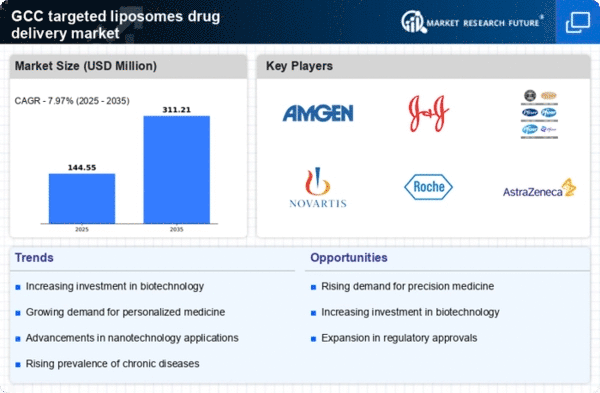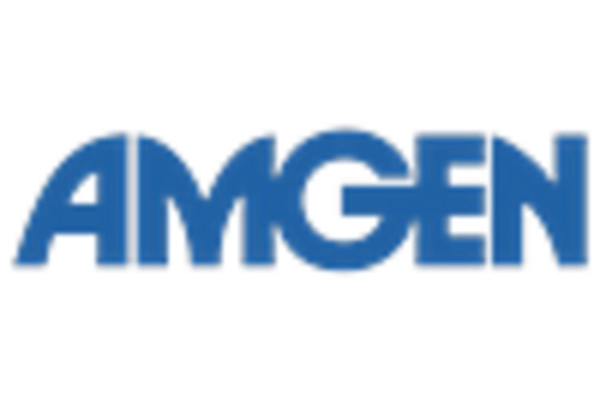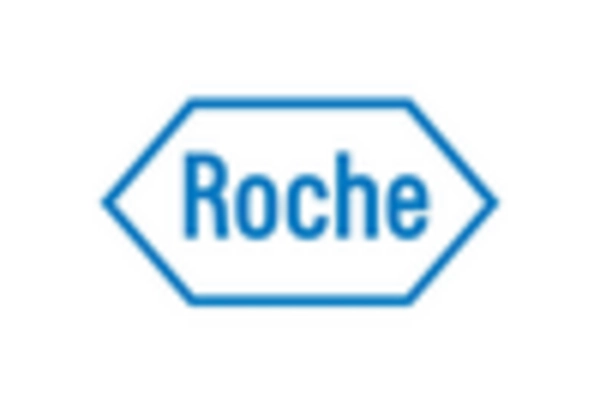Growing Investment in Biotechnology
The GCC region is witnessing a surge in investment in biotechnology, which is significantly impacting the targeted liposomes-drug-delivery market. Governments and private sectors are increasingly funding research and development initiatives aimed at enhancing drug delivery systems. This influx of capital is fostering innovation in liposomal formulations, enabling the development of more effective targeted therapies. For instance, the biotechnology sector in the GCC is expected to grow at a CAGR of 10% over the next five years. Such growth is likely to create a favorable environment for the targeted liposomes-drug-delivery market, as new technologies and products emerge to meet the evolving needs of healthcare providers and patients.
Increasing Prevalence of Chronic Diseases
The rising incidence of chronic diseases in the GCC region is a primary driver for the targeted liposomes-drug-delivery market. Conditions such as cancer, diabetes, and cardiovascular diseases are becoming more prevalent, necessitating advanced therapeutic solutions. The targeted liposomes-drug-delivery market is poised to benefit from this trend, as these delivery systems can enhance the efficacy of treatments while minimizing side effects. According to recent estimates, the GCC healthcare expenditure is projected to reach $100 billion by 2025, indicating a growing investment in innovative treatment modalities. This increasing focus on chronic disease management is likely to propel the demand for targeted liposomes, as healthcare providers seek more effective and patient-friendly drug delivery options.
Rising Awareness of Advanced Drug Delivery Systems
There is a growing awareness among healthcare professionals and patients regarding the benefits of advanced drug delivery systems, particularly in the GCC region. This awareness is driving the targeted liposomes-drug-delivery market, as stakeholders recognize the advantages of targeted therapies in improving treatment outcomes. Educational initiatives and conferences are increasingly highlighting the efficacy of liposomal formulations in delivering drugs more precisely to affected areas, thereby reducing systemic toxicity. As a result, the market is likely to experience a boost in demand, with healthcare providers advocating for the adoption of these innovative delivery systems in clinical practice.
Expansion of Pharmaceutical Manufacturing Capabilities
The expansion of pharmaceutical manufacturing capabilities in the GCC is a crucial driver for the targeted liposomes-drug-delivery market. With several countries in the region investing in state-of-the-art manufacturing facilities, there is an increased capacity to produce advanced drug delivery systems. This development is expected to enhance the availability of targeted liposomes, making them more accessible to healthcare providers and patients. Furthermore, the GCC's strategic location serves as a hub for pharmaceutical distribution, facilitating the export of these innovative products to neighboring regions. As manufacturing capabilities continue to grow, the targeted liposomes-drug-delivery market is likely to benefit from improved supply chain efficiencies and reduced production costs.
Supportive Government Policies for Healthcare Innovation
Supportive government policies aimed at fostering healthcare innovation are playing a pivotal role in the targeted liposomes-drug-delivery market. The GCC governments are implementing initiatives to encourage research and development in the pharmaceutical sector, including tax incentives and grants for innovative projects. These policies are designed to stimulate the growth of advanced drug delivery systems, including targeted liposomes. As a result, the market is likely to see an influx of new products and technologies that align with the region's healthcare goals. This supportive environment is expected to attract both local and international players to invest in the targeted liposomes-drug-delivery market, further driving its expansion.

















